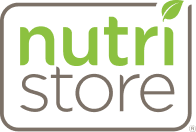How to be prepared for everyday emergencies on a budget

Emergencies can happen at any time, and they can be expensive. But there are ways to be prepared for everyday emergencies on a budget. Here are some tips:
- Create a budget and emergency fund.
One of the best ways to prepare for an emergency is to have a budget and an emergency fund. A budget will help you track your income and expenses so you can save money each month. An emergency fund is a savings account that you can use to cover unexpected expenses, such as a job loss or medical emergency.
Aim to save at least three to six months of living expenses in your emergency fund. You can start by saving a small amount each month, even if it's just $20 or $50. Over time, your savings will add up.
- Make an emergency plan.
Another important step in preparing for emergencies is to make an emergency plan. This plan should include things like where you will go if you have to evacuate your home, how you will contact your family members, and what you will do if you lose power or water.
You should also have a list of important emergency phone numbers, such as the fire department, police department, and poison control center. Keep this list in a safe place where everyone in your household can access it easily.
- Stock up on emergency supplies.
One of the best ways to be prepared for an emergency is to have a supply of food, water, and other essential supplies on hand. This will help you sustain yourself and your family if you have to evacuate your home or if you lose power or water.
Here are some basic emergency supplies to have on hand:
- Food and water: A three-day supply of food and water for each person in your household. Need a place to start? Check out Nutristore's Variety Buckets! Lasting 25 years and full of clean ingredients, our variety buckets allow you to figure out what kind of food you like to prep!
- First-aid kit: A first-aid kit with basic medical supplies.
- Flashlight: A flashlight with extra batteries.
- Radio: A battery-powered radio.
- Medications: Any prescription medications you or your family members need.
- Important documents: Copies of important documents, such as insurance cards, driver's licenses, and birth certificates.
You can find many of these items at thrift stores or dollar stores. You can also buy in bulk to save money.
- Prepare your home for emergencies.
There are also some things you can do to prepare your home for emergencies. This includes things like making sure your home is properly insured and that you have a fire escape plan.
Here are some other tips for preparing your home for emergencies:
- Trim trees and shrubs around your home to reduce the risk of fire.
- Install smoke detectors and carbon monoxide detectors in your home and test them regularly.
- Have a fire extinguisher on hand and know how to use it.
- Secure water heaters and other appliances to prevent them from tipping over in an earthquake.
- Create a family evacuation plan and practice it regularly.
- Stay informed about emergencies.
It is also important to stay informed about emergencies that are likely to occur in your area. This includes things like knowing the signs of a tornado or hurricane and what to do if there is a power outage.
You can sign up for emergency alerts from your local government and weather service. You can also follow emergency management agencies on social media.
Here are some additional tips for being prepared for everyday emergencies on a budget:
- Shop around for emergency supplies. Prices can vary widely, so it's important to shop around and compare prices before you buy. You can also find many emergency supplies at thrift stores or dollar stores.
- Buy in bulk. If you have the space, buying in bulk can save you money on emergency supplies.
- Make your own emergency supplies. Some emergency supplies, such as first-aid kits and disaster preparedness kits, can be made at home. This can be a great way to save money and get exactly what you need.
- Get involved in your community. Many communities have volunteer organizations that help people prepare for and recover from emergencies. Getting involved in one of these organizations is a great way to learn more about emergency preparedness and to help your community.
By following these tips, you can be prepared for everyday emergencies on a budget.
Leave a Comment
You May Also Like

How to Eliminate Food Waste & Elevate Baking: Freeze-Dried Berries!
It’s time to say goodbye to wasted fruit and hello to the wonders of freeze-dried berries. Here’s why they’re a game-changer:

Rowing from Sea to Sea
Read to learn more about Jayme, one of our Nutristore Brand Ambassadors and an amazing endurance athlete. What is it that drives these athletes to push themselves to the limit?







